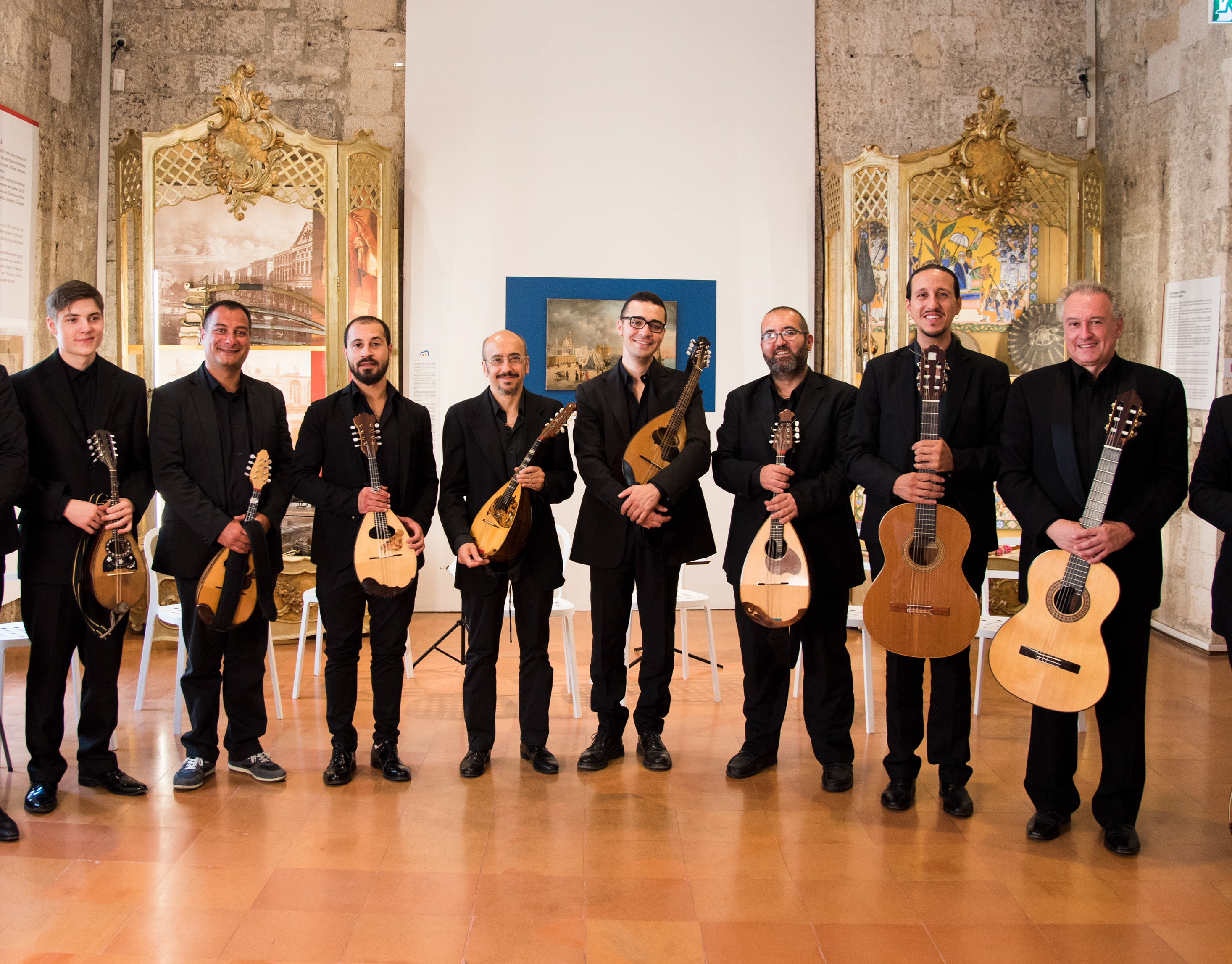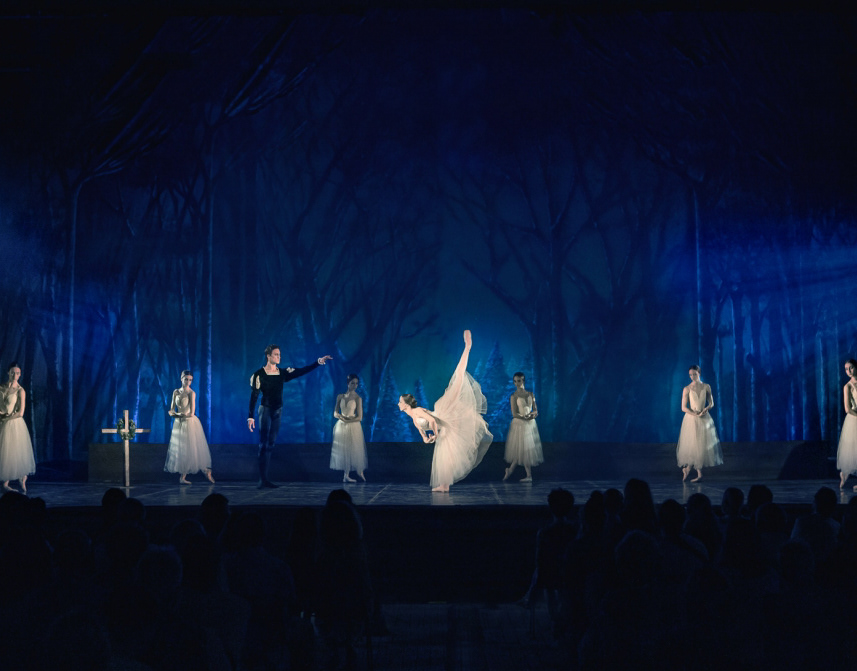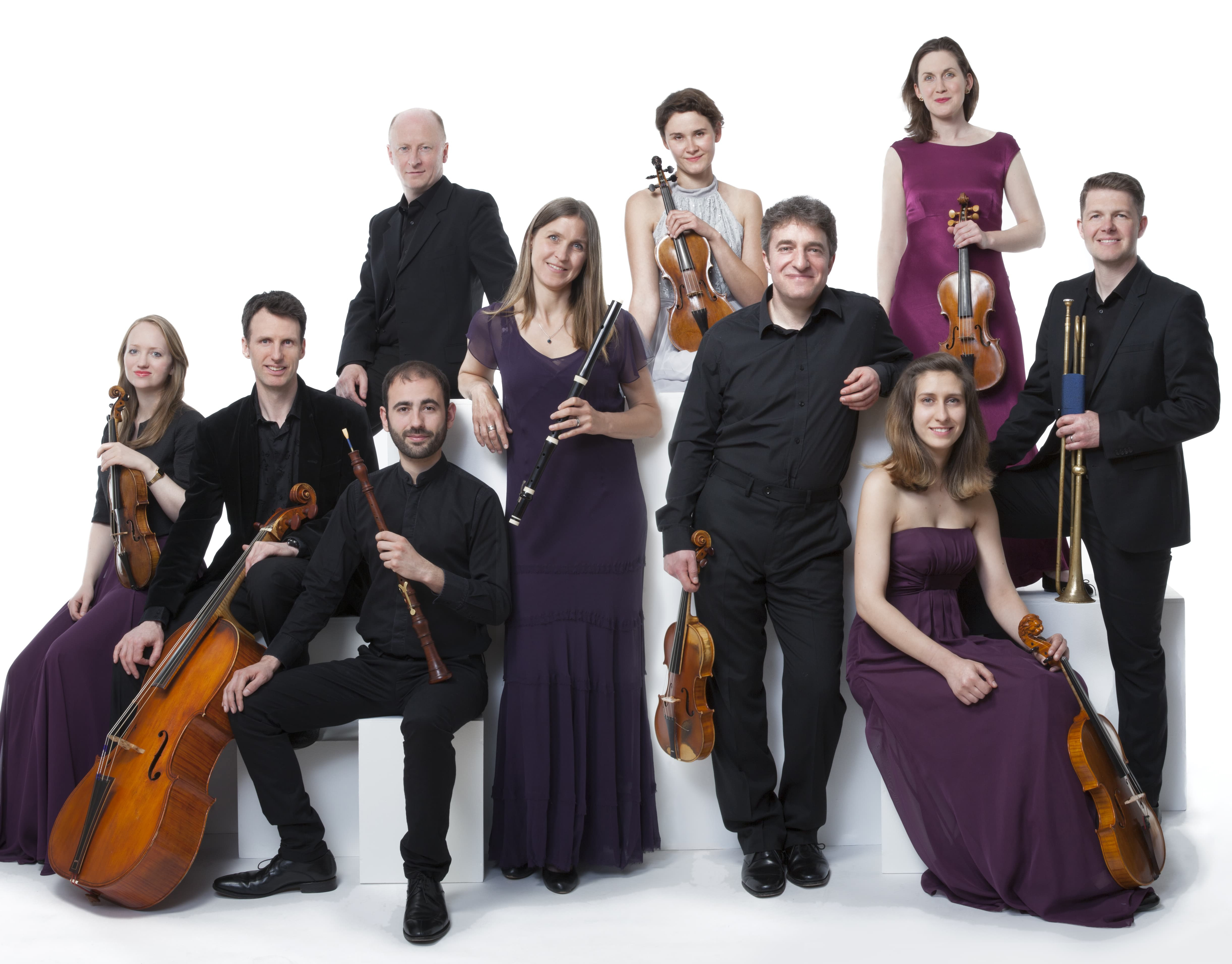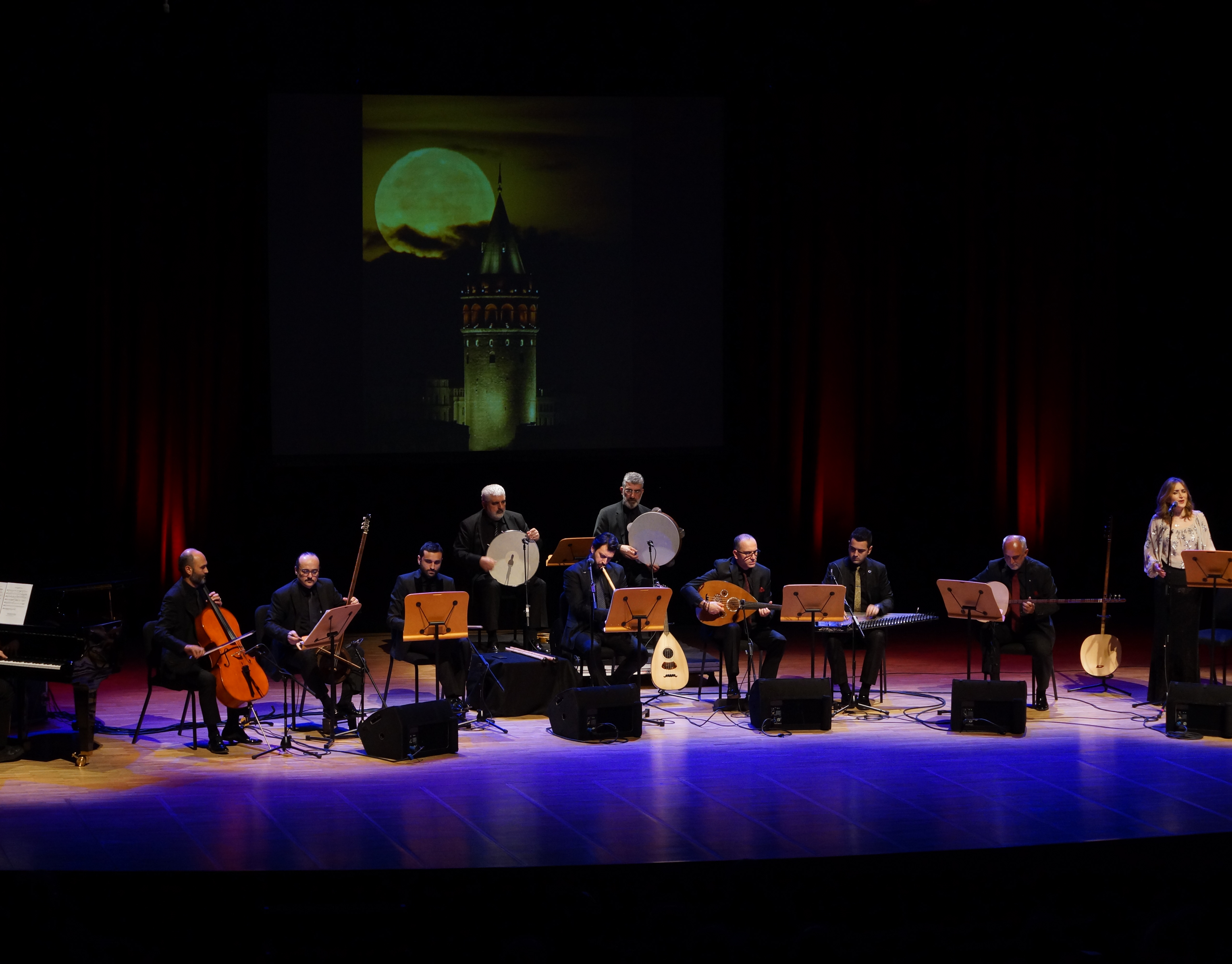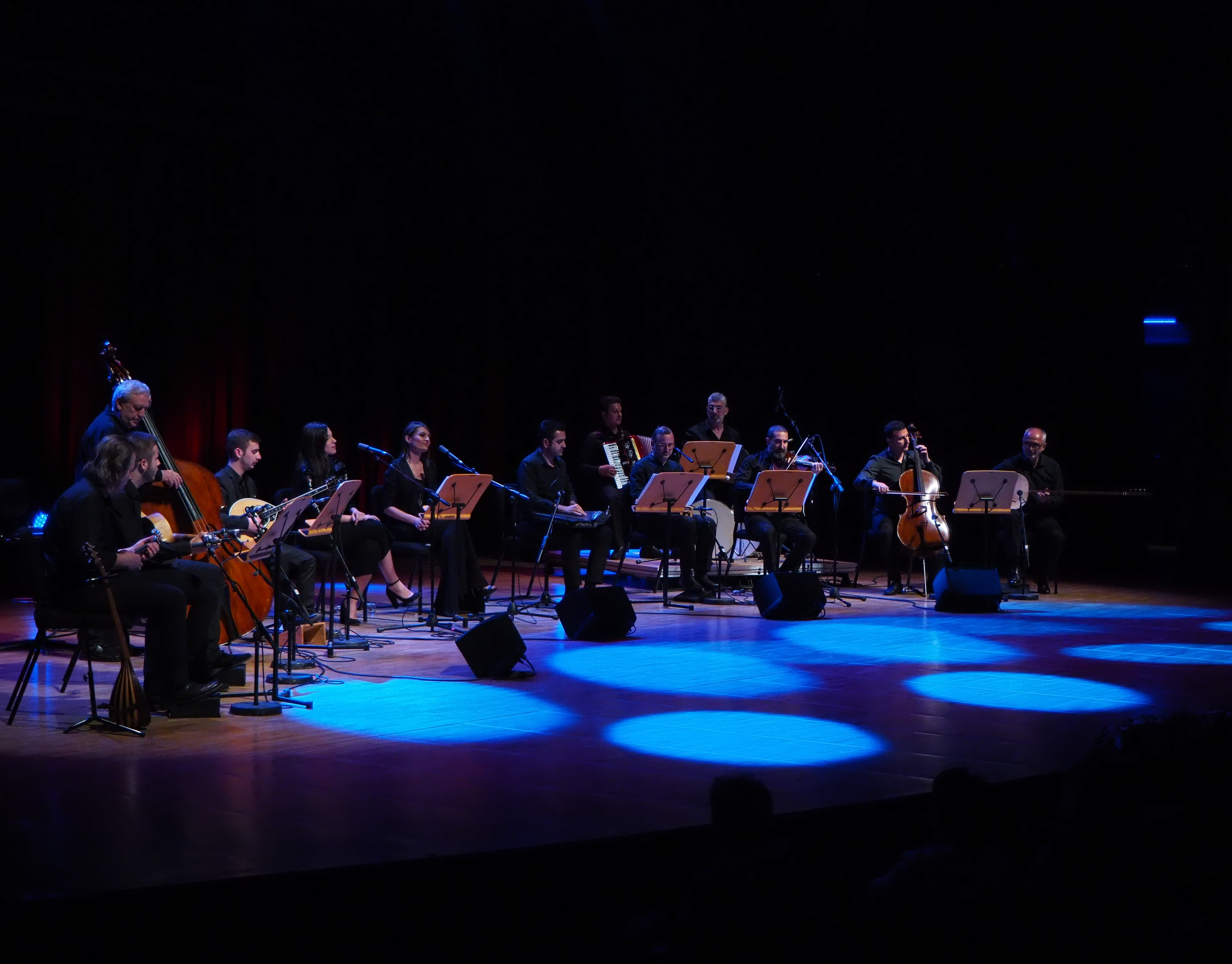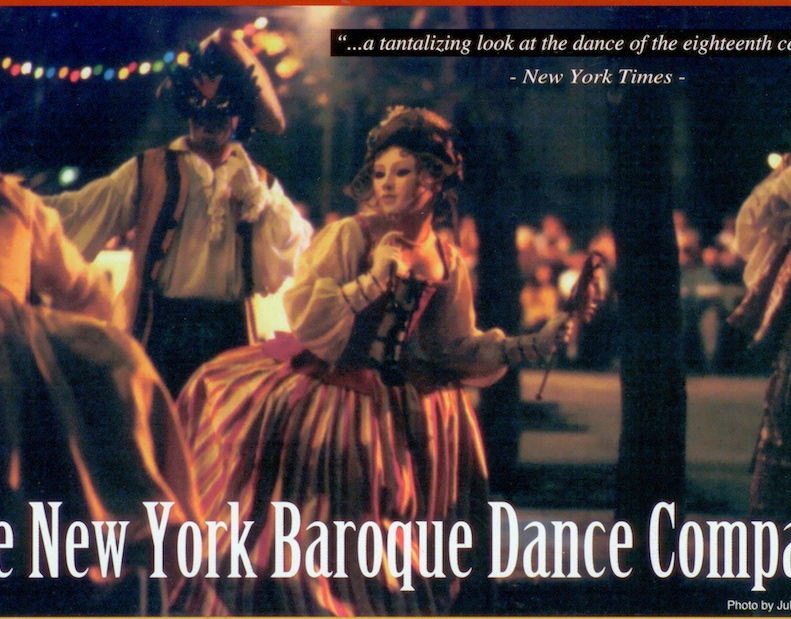

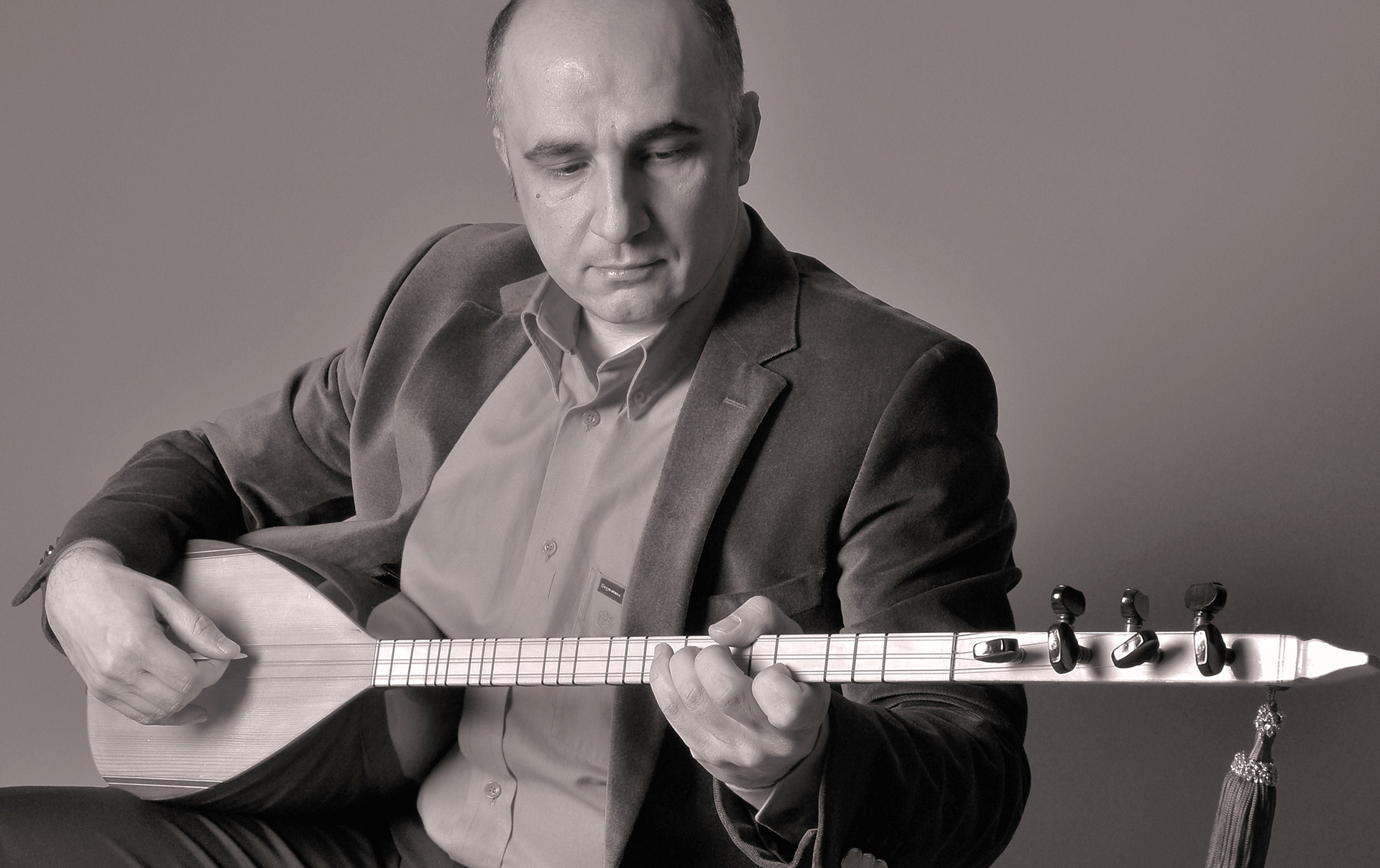
"My songs are about love and people, and they are performed to the heart, mind and to the memory of the listeners."
Okan Murat Öztürk
"one of the leading players in Turkey today"
Martin Stokes & Francesko Martinelli, The Rough Guide to World Music, Africa & Middle East
Okan Murat Öztürk
"one of the leading players in Turkey today"
Martin Stokes & Francesko Martinelli, The Rough Guide to World Music, Africa & Middle East
Prof. Dr., musicologist, researching writer, bağlama player and singer.
Okan Murat Öztürk is a distinguished musicologist and one of the masters of traditional Turkish music, particularly celebrated for his mastery of the bağlama. Both a singer and a bağlama player, he is well-regarded as "one of the leading figures in the interpretation of Anatolian music in Turkey today”.
His contributions extend into academia, where he has conducted significant research on the maqam system and its evolution in Turkish music. A prolific collaborator, he founded and leads the best bağlama trio in Turkey, the Bengi Bağlama Trio.
The trio celebrated its 37th anniversary in 2025.
With a deep commitment to preserving and promoting Turkey’s musical heritage, Öztürk continues to inspire audiences and scholars alike through his performances, publications, and educational endeavors.
In addition to his solo performances, he also records and performs with with other specialized musicians based on the concept and repertoire of each performance, showcasing the versatility and richness of traditional Anatolian music.
Further details:
Besides being a researcher and academician, Okan Murat Öztürk is one of Turkey’s leading traditional music interpreters.
He performed in various prominent national and international festivals.
He took part as a music director, performer and panelist in the Hattusa project supported by the European Union. As a leading musicologist, he conducts research and publications on an international scale on the theoretical and practical aspects of the concept of maqam, as well as on various problems that arose in the field of music in Turkey with the transition from Eastern civilization to Western civilization.
He completed his doctoral thesis in 2014, with the title “A New Approach to the Melody and Makam Relationship in Makam-Music in Terms of Analysis and Interpretation: Tone/Fret Tunings and Melodic Makam Nuclei”.
He published his first book, Zeybek Culture and Music in 2006.
As editor, writer or translator, he took place in many publications. He carried out joint projects with many distinguished domestic and foreign musicians and researchers.
In 1988, he founded the first bağlama trio in Turkey, Bengi Bağlama Trio. The trio was mentioned as the "modern acoustic instrumental folk group on the cutting edge of Anatolian sound" by Richard O. Nidel in The Basics, World Music.
In addition to the many album records released, Öztürk produced and presented various TV and radio programs for TRT (Turkish State Radio & Television).
Besides concerts, Okan Murat Öztürk has been also invited as a speaker to various conferences including An Historical and Analytical Approach to Traditional Turkish Music Theory by Istanbul Technical University, Theory Versus Practice: Octave Division and Ouds Frets of Abd al- Qader Maraghi by Iranian Academy of Arts in Tehran, Conference on Zeibekiko and Zeybek Dance by School of Oriental and African Studies (SOAS) in London.
Öztürk is a academic staff member of Ankara Music and Fine Arts University.
COUNTRIES PERFORMED:
Austria, Belgium, Czech Republic, Cuba, Hungary, Israel, Italy, Kazakhstan, the Netherlands, Portugal, Switzerland, Tajikistan, Türkiye, the UK and US.
Okan Murat Öztürk is a distinguished musicologist and one of the masters of traditional Turkish music, particularly celebrated for his mastery of the bağlama. Both a singer and a bağlama player, he is well-regarded as "one of the leading figures in the interpretation of Anatolian music in Turkey today”.
His contributions extend into academia, where he has conducted significant research on the maqam system and its evolution in Turkish music. A prolific collaborator, he founded and leads the best bağlama trio in Turkey, the Bengi Bağlama Trio.
The trio celebrated its 37th anniversary in 2025.
With a deep commitment to preserving and promoting Turkey’s musical heritage, Öztürk continues to inspire audiences and scholars alike through his performances, publications, and educational endeavors.
In addition to his solo performances, he also records and performs with with other specialized musicians based on the concept and repertoire of each performance, showcasing the versatility and richness of traditional Anatolian music.
Further details:
Besides being a researcher and academician, Okan Murat Öztürk is one of Turkey’s leading traditional music interpreters.
He performed in various prominent national and international festivals.
He took part as a music director, performer and panelist in the Hattusa project supported by the European Union. As a leading musicologist, he conducts research and publications on an international scale on the theoretical and practical aspects of the concept of maqam, as well as on various problems that arose in the field of music in Turkey with the transition from Eastern civilization to Western civilization.
He completed his doctoral thesis in 2014, with the title “A New Approach to the Melody and Makam Relationship in Makam-Music in Terms of Analysis and Interpretation: Tone/Fret Tunings and Melodic Makam Nuclei”.
He published his first book, Zeybek Culture and Music in 2006.
As editor, writer or translator, he took place in many publications. He carried out joint projects with many distinguished domestic and foreign musicians and researchers.
In 1988, he founded the first bağlama trio in Turkey, Bengi Bağlama Trio. The trio was mentioned as the "modern acoustic instrumental folk group on the cutting edge of Anatolian sound" by Richard O. Nidel in The Basics, World Music.
In addition to the many album records released, Öztürk produced and presented various TV and radio programs for TRT (Turkish State Radio & Television).
Besides concerts, Okan Murat Öztürk has been also invited as a speaker to various conferences including An Historical and Analytical Approach to Traditional Turkish Music Theory by Istanbul Technical University, Theory Versus Practice: Octave Division and Ouds Frets of Abd al- Qader Maraghi by Iranian Academy of Arts in Tehran, Conference on Zeibekiko and Zeybek Dance by School of Oriental and African Studies (SOAS) in London.
Öztürk is a academic staff member of Ankara Music and Fine Arts University.
COUNTRIES PERFORMED:
Austria, Belgium, Czech Republic, Cuba, Hungary, Israel, Italy, Kazakhstan, the Netherlands, Portugal, Switzerland, Tajikistan, Türkiye, the UK and US.
Published Major Works (Book, CD, Documentary and Theater music):
The Relationship between Art and Politics in the 19th Century Ottoman Empire (2021), Atlas of Makam Music in Anatolia and Neighboring Geographies (2021), Views on Ottoman-Turkish Music: History, Theory and Performance (2021), Turkish Modernization: Objects and Symbols (2021), Mehter (2020), Music Policies of the Republic (2019), Turkish Music Atlas (2019), Turkic Soundscapes (2018), Die Bağlama in der Türkei und Europa (2018), Tanburi Cemil Bey (2017), İllusion (2016) , Maqam Traditions (2016), Writing the History of 'Ottoman Music' (2015), Space of Mugham (2015), In Which Direction is Music Heading? (2014), The Maqam (2012), Music Culture of Turkey (2008).
Pirs and Dedes (2020), Love can not be Reproached (2017), New Tradition (2013), Fountain (2008), Love Makes the Man Sing (2007), The Guide/Caravan of Friends 2 (2007), Caravan of Friends 1 (2005), Gift (2003), The Flood Goes Away, The Sand Remains (2001), Music from the Tea Lands (2000), Nought (1999, with Erkan Oğur), Tunes from the Garden of the Sun (1999), Old Airs (1998), Turkish Authentic Saz (1997), Crazy Emine theater music, Turkish Fashion documentary music, The Book of Turkey with the Masters documentary music, Colors of Anatolia documentary music.
He is also a member of various scientific and professional organizations including the ICTM and Ethnomusicology Association.
Overview of Traditional Anatolian Music & the Bağlama
Anatolia, or "Anadolu" in Turkish, is a rich tapestry of cultures and histories that beckons to those with a passion for exploring the world's diverse musical landscapes. Central to this vibrant heritage is the bağlama, an instrument that embodies the spirit of Turkish folk music. Its warm, resonant tones and intricate craftsmanship make it not just a musical tool but a symbol of the Anatolian soul. Whether accompanying heartfelt folk songs, the bağlama weaves together stories of love, loss, and community, making it an indispensable part of Türkiye's cultural identity.
The region, situated on the Eastern Mediterranean peninsula and historically referred to as "Asia Minor," bears witness to over 10,000 years of the accumulation of diverse civilizations.
"Though a simple instrument, the bağlama is capable of enormous variety”
Martin Stokes & Francesko Martinelli, The Rough Guide to World Music, Africa & Middle East
The Relationship between Art and Politics in the 19th Century Ottoman Empire (2021), Atlas of Makam Music in Anatolia and Neighboring Geographies (2021), Views on Ottoman-Turkish Music: History, Theory and Performance (2021), Turkish Modernization: Objects and Symbols (2021), Mehter (2020), Music Policies of the Republic (2019), Turkish Music Atlas (2019), Turkic Soundscapes (2018), Die Bağlama in der Türkei und Europa (2018), Tanburi Cemil Bey (2017), İllusion (2016) , Maqam Traditions (2016), Writing the History of 'Ottoman Music' (2015), Space of Mugham (2015), In Which Direction is Music Heading? (2014), The Maqam (2012), Music Culture of Turkey (2008).
Pirs and Dedes (2020), Love can not be Reproached (2017), New Tradition (2013), Fountain (2008), Love Makes the Man Sing (2007), The Guide/Caravan of Friends 2 (2007), Caravan of Friends 1 (2005), Gift (2003), The Flood Goes Away, The Sand Remains (2001), Music from the Tea Lands (2000), Nought (1999, with Erkan Oğur), Tunes from the Garden of the Sun (1999), Old Airs (1998), Turkish Authentic Saz (1997), Crazy Emine theater music, Turkish Fashion documentary music, The Book of Turkey with the Masters documentary music, Colors of Anatolia documentary music.
He is also a member of various scientific and professional organizations including the ICTM and Ethnomusicology Association.
Overview of Traditional Anatolian Music & the Bağlama
Anatolia, or "Anadolu" in Turkish, is a rich tapestry of cultures and histories that beckons to those with a passion for exploring the world's diverse musical landscapes. Central to this vibrant heritage is the bağlama, an instrument that embodies the spirit of Turkish folk music. Its warm, resonant tones and intricate craftsmanship make it not just a musical tool but a symbol of the Anatolian soul. Whether accompanying heartfelt folk songs, the bağlama weaves together stories of love, loss, and community, making it an indispensable part of Türkiye's cultural identity.
The region, situated on the Eastern Mediterranean peninsula and historically referred to as "Asia Minor," bears witness to over 10,000 years of the accumulation of diverse civilizations.
"Though a simple instrument, the bağlama is capable of enormous variety”
Martin Stokes & Francesko Martinelli, The Rough Guide to World Music, Africa & Middle East
The bağlama is a beloved string instrument that serves as a hallmark of traditional Turkish music. With its distinct, resonant sound, the bağlama is deeply woven into the cultural fabric of Turkey, representing the rich musical heritage of the region.
This versatile instrument can be found in villages and cities alike, resonating with the melodies of folk songs that celebrate love, nature, and daily life. The bağlama is not just an instrument; it is a storyteller, conveying the emotions and experiences of generations.
Traditional Anatolian music encompasses a diverse range of styles and influences, reflecting the many cultures that have thrived in the region throughout history. From joyful celebrations to poignant laments, the music embodies the spirit of Anatolia, inviting listeners to connect with its history and traditions. Whether played solo or in ensemble, the bağlama continues to be a vital part of this musical legacy, bringing people together through the power of song.
The people of Anatolia call the poetic verses with syllabic meters which they sing with a certain melody as "türkü".
The music is quite unique -- and incredibly rich in its instruments, tonal systems, "makam" (melodic formuale), "usul" (rhythmic patterns and measuring), repertoire, performance styles, and related dance and singing systems.
Türkü is the most frequently seen example in the folk music tradition of Anatolian people.
Love, nature, longing, homeland, living far from one's home or homeland, fun, work and similar subjects are the main themes.
Turku melodies which develop depending on their modal and rhythmic patterns display an opulent variety.
Due to their musical contexts, türküs play a very important role in the comprehension of Anatolian music.
Turkus are the language of Anatolian people. In brief, for Anatolia the türkü represents everything related to people and to life itself.
The people of Anatolia call the poetic verses with syllabic meters which they sing with a certain melody as "türkü".
The music is quite unique -- and incredibly rich in its instruments, tonal systems, "makam" (melodic formuale), "usul" (rhythmic patterns and measuring), repertoire, performance styles, and related dance and singing systems.
Türkü is the most frequently seen example in the folk music tradition of Anatolian people.
Love, nature, longing, homeland, living far from one's home or homeland, fun, work and similar subjects are the main themes.
Turku melodies which develop depending on their modal and rhythmic patterns display an opulent variety.
Due to their musical contexts, türküs play a very important role in the comprehension of Anatolian music.
Turkus are the language of Anatolian people. In brief, for Anatolia the türkü represents everything related to people and to life itself.

